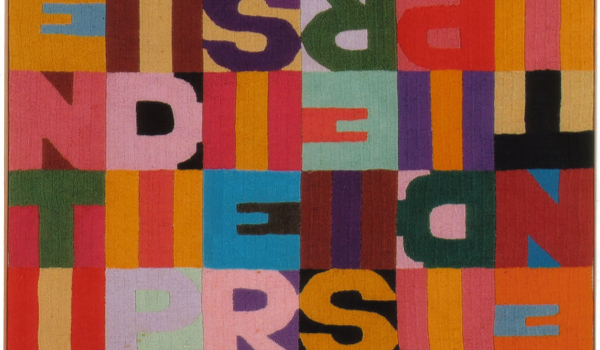
Boetti's Arazzi

A large donation of work by Italian artist Alighiero Boetti is going on show this month at the Gemeentemuseum Den Haag in the Netherlands. Originally a member of the Arte Povera movement, Boetti (1940–1994) quickly took a different direction of his own. From the 1970s, he specialized in colourful, playfully inventive embroideries produced for him in Afghanistan. The works seem to reflect a mysterious system in which a major role is played both by compositions featuring letters and words and by maps of the world. Thanks to former gallery holder and collector Tanya Rumpff, who has made the museum a large donation of these ‘Arazzi’, the Gemeentemuseum has instantly acquired a marvellous selection of items from Boetti’s multi-faceted oeuvre.

At the start of his career, Boetti worked primarily with everyday materials sourced from hardware dealers in his home city of Turin. He used everything from PVC pipes and tubes to industrial lighting fixtures and paper doilies. In 1968, for example, he used stacked doilies to construct a two-metre Roman column (Colonna). The works of the 1970s, when Boetti was regularly travelling to Kabul, are entirely different. During one of his first visits, it occurred to him to ask his Afghan friends to get their wives to embroider texts which he created in the first instance in the form of silkscreen prints, multiples or conceptual works. The resulting traditionally made ‘Arazzi’ (Italian for tapestries) created new opportunities for Boetti: they enabled the serial production of unique artworks of rich significance without the need for any intervention on his part.

The Afghan weavers and embroiderers put their own stamp on many of Boetti’s Arazzi, for example by choosing the colours for the embroidered letters. Boetti saw this as a subversive act: a way of undermining the art world. His Arazzi play with the idea of ‘signature’ and ignore the distinction between ‘one-off’ and ‘serial ‘works’ – exactly those things that constitute the raison d’être of the art market.
Until 30 June 2019,
